Programming Degree

How do bootcamps compare to traditional computer science degrees in terms of learning programming ?
Bootcamps and traditional computer science degrees are two popular ways to learn programming. While both have their advantages and disadvantages, they differ in several key aspects: 1. **Learning Duration**: Bootcamps last a few weeks or months, while traditional degrees take four years for a bachelor's degree and up to two additional years for a master's degree. 2. **Curriculum and Coursework**: Bootcamps focus on practical, project-based learning of specific programming languages and tools, while traditional degrees offer a broader range of courses covering various topics such as algorithms, data structures, operating systems, and computer architecture. 3. **Cost and Financial Considerations**: Bootcamps are generally less expensive than traditional degrees, with tuition fees ranging from a few thousand to tens of thousands of dollars, while traditional degrees can be significantly more expensive. 4. **Career Opportunities and Outcomes**: Bootcamps prepare students for entry-level programming jobs quickly, while traditional degrees open up a wider range of career opportunities, including roles in research, academia, and management. The choice between a bootcamp and a traditional degree depends on individual goals, preferences, and circumstances.
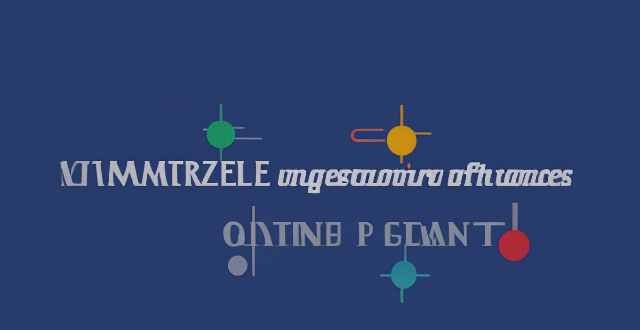
What are some reliable online learning resources for coding and programming ?
The text summarizes reliable online learning resources for coding and programming, including Coursera, edX, Udemy, Codecademy, Khan Academy, Pluralsight, LeetCode, and HackerRank. Each resource provides video lectures, interactive exercises, quizzes, assignments, and assessments to help learners improve their coding and programming skills. Some of the highlights of these resources include collaboration with prestigious universities, free access to most courses, personalized learning plans, and integration with popular development tools.

How can I find reliable and effective programming tutorials online ?
Finding reliable and effective programming tutorials online can be a daunting task, especially for beginners. However, with the right approach and tools, you can easily find high-quality resources that will help you learn programming effectively. Here are some tips on how to find reliable and effective programming tutorials online: 1. Identify Your Learning Goals 2. Use Reputable Sources 3. Look for Reviews and Ratings 4. Check for Updates and Maintenance 5. Practice and Apply What You Learn

How does machine learning differ from traditional programming ?
Traditional programming involves writing code for specific, predictableTraditional programming involves writing code for specific, predictable while machine learning focuses on adapt Traditional programs produce deterministic results and require explicit instructions for all scenarios, whereas machine learning models can generalize from examples and make predictions on new data. The development process for traditional programming involves algorithm design, debugging, and testing, while machine learning involves data collection, model training, evaluation, and tuning. Traditional programs may struggle with scalability and flexibility, while machine learning models can handle large datasets and adapt to changing patterns without manual code changes. Human involvement in traditional programming is active and clear, while in machine learning, it is passive and sometimes difficult to understand the decision-making process. The choice between these approaches depends on the problem's nature, data availability, and the need for adaptability and scalability.
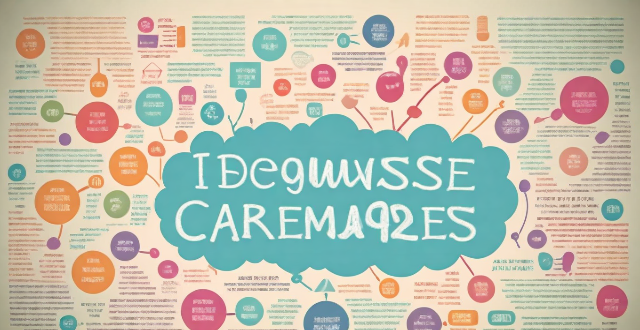
What are the best online resources for learning programming ?
The article discusses various online resources available for learning programming. It categorizes these resources into free tutorials, paid courses, and practice projects. The free tutorials include Codecademy, Coursera, edX, and Khan Academy, which offer interactive exercises, video tutorials, and quizzes to help learners practice their skills. Paid courses are offered by Udemy, Treehouse, Pluralsight, and Lynda/LinkedIn Learning, providing video tutorials, interactive exercises, and assessments. Practice projects can be found on GitHub, HackerRank, LeetCode, and Project Euler, where learners can work on real-world problems and improve their problem-solving skills. Overall, the article provides a comprehensive list of resources for those looking to learn programming online.

Can you recommend any good books for beginners to learn programming ?
Recommendations for Beginners to Learn Programming: 1. "Head First Programming" by Paul Barry - visual learning approach, covers basic programming concepts, includes exercises and examples. 2. "Automate the Boring Stuff with Python" by Al Sweigart - practical applications of Python, easy-to-follow tutorials, introduces automation and scripting. 3. "Eloquent JavaScript" by Marijn Haverbeke - focuses on web development, covers both programming fundamentals and JavaScript-specific topics, includes interactive examples and challenges. 4. "Learn Python the Hard Way" by Zed Shaw - hands-on approach to learning Python, emphasizes project-based learning, includes exercises and challenges. 5. "Programming: Principles and Practice Using Python" by Guido van Rossum and Barbara Beeton - comprehensive introduction to programming using Python, covers a wide range of topics, includes exercises and case studies.

Which programming language should I start learning first as a beginner ?
Choosing the first programming language to learn can be overwhelming for beginners due to the plethora of options available. However, there are certain factors that you should consider while making this decision. These include ease of learning, popularity and community support, application domain, and job prospects. Recommended languages for beginners based on these factors include Python, JavaScript, Java, and C#. The best programming language to start with depends on your goals, interests, and how you plan to apply your skills. However, Python and JavaScript are generally recommended for beginners due to their ease of learning and broad applicability. Once you've mastered the basics of programming with one language, you'll find it easier to learn others and expand your skill set. Remember, the key is to get started and keep practicing!

Is it necessary to have a strong math background to learn programming effectively ?
Is it necessary to have a strong math background to learn programming effectively? Programming is a complex field that involves various skills and knowledge. One of the most common questions asked by beginners is whether having a strong math background is necessary for effective learning of programming. In this article, we will explore this question in detail. Mathematics plays a crucial role in programming, especially in areas such as data analysis, machine learning, and game development. However, it is not absolutely necessary for all types of programming. For example, if you are developing simple web applications or writing scripts to automate tasks, a strong math background may not be required. If you plan to work in fields like data science or game development, then having a good understanding of mathematics can be very beneficial. If you feel that your math skills are lacking, there are several ways to improve them through online courses, reading books, practicing problem solving, and joining study groups. With dedication and effort, anyone can improve their math skills and become an effective programmer.
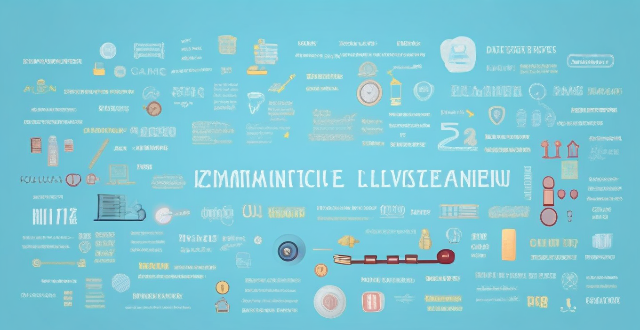
What programming languages are commonly used in educational game development ?
The text is about educational game development and the programming languages used. It lists some of the most commonly used programming languages in educational game development, including Python, JavaScript, Java, C#, UnityScript (C# variant), and HTML5/CSS3/JavaScript. The pros and cons of each language are discussed, along with examples of games that use them. The conclusion states that by choosing the right language for your project, you can ensure that your game is engaging, educational, and accessible to a wide audience.

Are there any interactive platforms where I can practice programming skills ?
Interactive Platforms for Programming Practice: - Codecademy offers free courses, advanced paid lessons, and project building. - LeetCode provides coding problems, discussion forums, and contests. - HackerRank presents coding challenges across various tech domains. - Exercism features multilingual exercises with mentor support and community interaction. - Repl.it is a cloud-based IDE with multi-language support, collaboration options, and templates.

What are the educational requirements for professionals interested in ecological design ?
Ecological design requires professionals to have a combination of skills and knowledge in various fields. A bachelor's degree is typically required for entry-level positions, with majors such as environmental science, architecture, landscape architecture, and urban planning. Many professionals also pursue a master's degree or certifications to gain specialized knowledge and advance their careers. Certifications include LEED Accredited Professional, Living Building Challenge Certified Professional, American Society of Landscape Architects Certified Professional, and National Council of Interior Design Qualifications Certified Professional Interior Designer.

How is streaming affecting traditional television and film production ?
Streaming services have revolutionized the entertainment industry, leading to significant shifts in viewing habits and production practices. Audiences now prefer on-demand content, which has reduced the appeal of scheduled programming on traditional television. Streaming platforms release entire seasons at once, allowing for shorter production cycles but also potentially impacting quality due to the accelerated pace. These services invest heavily in original content, leading to varied budget allocation and a direct-to-consumer model that changes revenue generation. They pioneer in experimenting with new genres and targeting niche markets, as well as promoting international content. Economically, streaming introduces new revenue streams and competition, leading to industry consolidation. However, challenges include quality control concerns due to rapid production and the need for self-regulation amidst increased creative freedom for creators. Overall, streaming presents both challenges and opportunities for innovation and diversity in media.

How important is understanding algorithms and data structures when learning to program ?
Algorithms and data structures are essential for effective programming, influencing efficiency, performance, scalability, problem-solving ability, and interview preparation. Understanding them also lays the groundwork for advanced concepts and everyday tasks, making it crucial for programmers aiming for excellence in their field.

What are some successful career paths for women in male-dominated industries ?
In male-dominated industries, women can find success in various career paths by developing key skills and strategies to overcome challenges. In engineering, women should build a strong technical foundation, seek mentorship, and network with other women in the field. In finance and banking, gaining relevant qualifications, developing resilience, and building a professional network are crucial. In technology and IT, staying up-to-date with emerging technologies and fostering an inclusive workplace culture are important. In construction and architecture, pursuing relevant qualifications, advocating for gender diversity policies, and building strong relationships with clients are essential for success. Overall, women can achieve success in male-dominated industries by focusing on skill development, networking, and advocating for change.
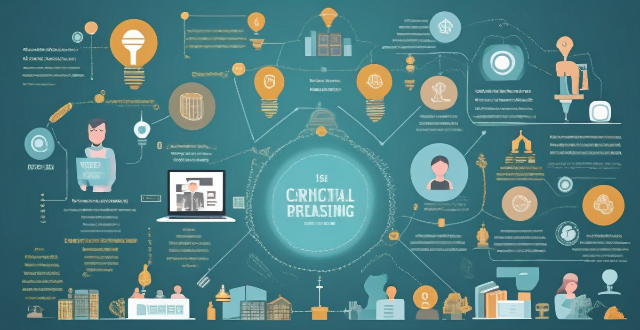
What role will education play in preparing individuals for future careers ?
Education is crucial for preparing individuals for future careers by developing technical and soft skills, fostering critical thinking, promoting lifelong learning, providing career guidance, offering networking opportunities, allowing for practical experience, broadening global perspectives, and contributing to personal development.

How much does an electronic speed controller cost ?
The cost of an electronic speed controller (ESC) varies depending on brand, type, and features. Popular brands include Hobbywing, Tattu, and SimonK, with prices ranging from $5 to over $100. Brushed ESCs are generally less expensive than brushless ESCs, while more features like higher current ratings and advanced programming options can increase the price. It's important to consider your specific needs and budget when choosing an ESC.

What factors should I consider when choosing an electronic speed controller for my application ?
Choosing the right electronic speed controller for your application requires considering several factors, including power requirements, compatibility with your system, accuracy and precision, ease of use and programming, reliability and durability, and cost-effectiveness. Ensure that the chosen controller can handle the maximum power output required by your system, is compatible with all components, offers accurate and precise control, is easy to program and operate, is reliable and durable enough to withstand harsh operating conditions, and offers good value for money.

What skills do workers need to develop to adapt to automation ?
Automation is transforming the workplace, and workers need to develop a set of skills to adapt to this change. These skills will help them not only to coexist with automation but also to thrive in their careers. Here are some key skills that workers should focus on: 1. Technical Proficiency - Programming and Coding: Understanding basic programming concepts can be beneficial across various industries. - Digital Literacy: Being able to use digital tools effectively is essential for most jobs. - Data Analysis: The ability to analyze data and draw insights is increasingly valuable. 2. Critical Thinking and Problem-Solving - Analytical Thinking: The capacity to dissect complex problems and identify solutions is crucial. - Creative Thinking: Innovation is often required to find new ways to approach tasks. 3. Adaptability and Flexibility - Learning Agility: The willingness and ability to learn new skills quickly. - Change Management: Being comfortable with change and adapting to new processes. 4. Emotional Intelligence and People Skills - Communication: Strong communication skills are necessary to collaborate effectively. - Empathy: Understanding and relating to colleagues' needs and perspectives. 5. Continuous Learning Mindset - Lifelong Learning: Embracing ongoing education to stay relevant in a changing job market. - Self-Motivation: The drive to seek out new knowledge and skills without external prompts. 6. Interdisciplinary Knowledge - Cross-Functional Understanding: Having knowledge across different areas can lead to more well-rounded problem-solving. 7. Business Acumen - Understanding Business Context: Knowing how your work impacts the broader business goals. - Project Management: Managing tasks and timelines efficiently. 8. Leadership and Influence - Team Leadership: Leading and motivating team members toward common goals. - Influence: Persuading others and affecting change in a positive manner. 9. Cognitive Flexibility - Mental Flexibility: Being able to switch between different tasks or think about different concepts. 10. Resilience - Stress Tolerance: Handling pressure and challenges without losing effectiveness. - Growth Mindset: Viewing failures as opportunities to learn and grow.
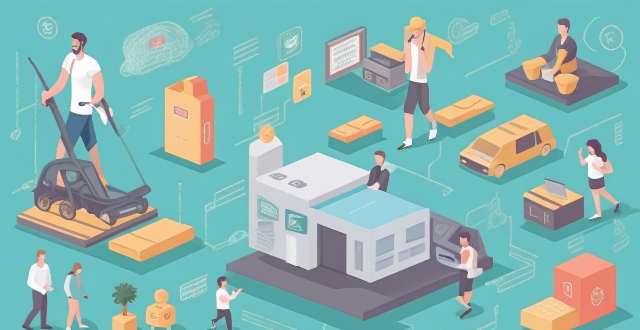
What are the key factors to consider when managing a sports facility ?
Managing a sports facility requires attention to several key factors, including facility maintenance, safety measures, customer service, and financial management. Proper maintenance involves regular cleaning, equipment repair and replacement, and overall upkeep of the facility. Safety measures include emergency preparedness plans, first aid availability, and proper supervision during activities. Providing excellent customer service involves clear communication channels, prompt complaint handling, and quality programming options. Effective financial management includes budgeting, revenue generation, and cost control strategies. By focusing on these areas and implementing effective strategies, you can ensure the long-term success and sustainability of your sports facility.
![Does [insert celebrity name] have any advanced degrees ?](/images/3nde/79b89068-5c9d-4da7-b896-7e397eb5c6cd.png)
Does [insert celebrity name] have any advanced degrees ?
Celebrity Education, Advanced Degrees, Intellectual Pursuits
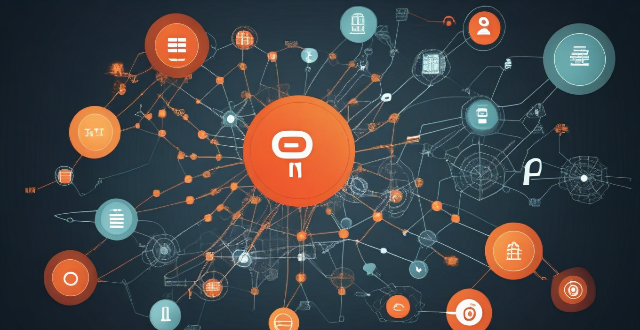
What skills are needed to work with blockchain technology ?
Working with blockchain technology requires technical skills in programming languages, distributed systems, cryptography, networking, data structures and algorithms, database management, cloud services, version control, testing and debugging, and DevOps. It also demands business acumen in project management, market analysis, financial literacy, and business development. Legal and ethical understanding is crucial for regulatory compliance, privacy and security, ethical considerations, and intellectual property. Communication skills are needed for clear communication, documentation, and presentation. As blockchain evolves, professionals must stay updated with advancements and best practices.

What are some common mistakes that new programmers make while learning to code ?
New programmers often make mistakes due to lack of planning, ignoring basics, code quality issues, misunderstanding language specifics, neglecting testing, overlooking version control, copying and pasting code without understanding, ignoring best practices, overcomplicating things, and not asking for help soon enough. To avoid these common pitfalls, new programmers should stay curious and humble, practice good programming habits, embrace iteration, use available resources, reflect on mistakes, and plan before coding. Making mistakes is part of the learning process, and the key is to recognize them, understand why they occurred, and ensure they become valuable lessons for future success.

What education and training is required to work as a sports agent ?
Education and training are crucial for aspiring sports agents, who must possess a bachelor's degree in relevant fields and often benefit from a master's degree. Internships and certification programs offer hands-on experience and professional development, while key skills include communication, business acumen, legal knowledge, networking ability, and ethical standards. Continuous learning is essential to adapt to industry changes and ensure long-term success.
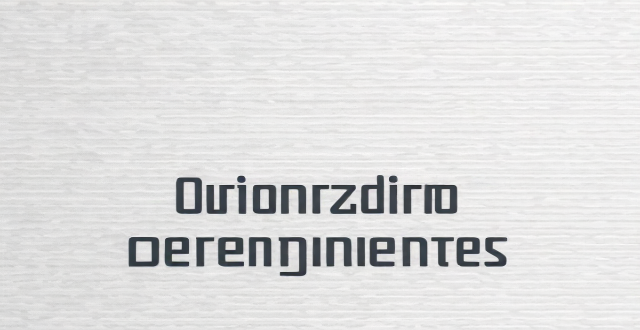
What are the best online learning resources for beginners ?
The text provides a list of online learning resources for beginners, including Khan Academy, Coursera, edX, Udemy, Codecademy, Duolingo, Skillshare, and LinkedIn Learning. Each resource offers courses in various subjects, from computer science to language learning, and many are free or have affordable options available.

What qualifications should a sport psychology counselor have ?
Sport psychology counselors, also known as sport psychologists or mental performance consultants, are professionals who work with athletes to improve their mental and emotional skills related to sports performance. To be an effective sport psychology counselor, one should possess the following qualifications: - Educational Background: A foundation in psychology, sports science, or a related field is essential. Many sport psychology counselors have a master's degree in counseling, psychology, or sports psychology. Some positions may require a doctoral degree (Ph.D. or Psy.D.) in psychology or a related field with a specialization in sport psychology. - Professional Training: Completion of specialized training programs in sport psychology offered by recognized organizations. Hands-on experience through internships or practical placements working with athletes or teams. - Licensure and Certification: Depending on the country, state/provincial licensure as a psychologist may be required to practice independently. Obtaining certification from reputable organizations such as the Association for Applied Sport Psychology (AASP) demonstrates expertise and commitment to the field. - Skills and Personal Attributes: Ability to effectively communicate with athletes, coaches, and other support staff. Proficiency in active listening to understand athletes' needs and concerns. The capacity to empathize with athletes and provide supportive guidance. Flexibility to work with diverse populations and adapt techniques to individual needs. Strict adherence to ethical standards, including maintaining confidentiality. - Continuing Education and Development: Ongoing education to stay current with research and advancements in sport psychology. Participation in workshops, conferences, and continuing education courses. - Ethical Standards and Professionalism: Adherence to a code of ethics set forth by professional organizations. Clear understanding and maintenance of professional boundaries with clients. - Interpersonal Relations: The ability to work collaboratively with coaches, trainers, and other support staff. Understanding and respect for diverse cultural backgrounds of athletes. - Assessment and Evaluation: Proficiency in using psychological assessments to evaluate athletes' mental states. Establishing feedback systems to measure progress and adjust interventions accordingly.

Is it possible to build a DIY speed controller, and how would I go about doing so ?
The article discusses the process of building a DIY speed controller using components such as a microcontroller, motor driver, power supply, and motor. It outlines the steps required to connect the components together and provides example code for programming the microcontroller to control the speed of the motor based on the input from a potentiometer. The article also mentions that testing and troubleshooting may be necessary to ensure proper operation of the speed controller.
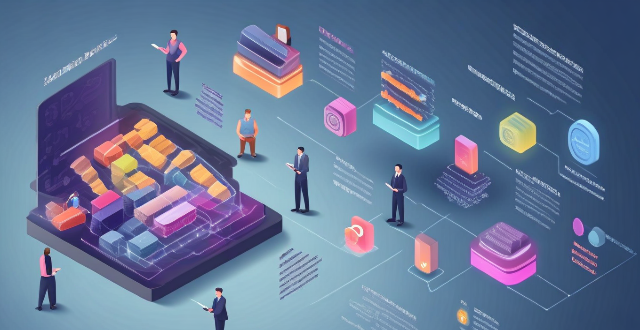
What are smart contracts in the context of blockchain ?
Smart contracts are self-executing digital agreements that operate within the blockchain, providing a decentralized and trustless system for transactions. They are created using specific programming languages and deployed onto a blockchain platform. Once conditions are met, smart contracts execute automatically, with each node verifying the process to ensure accuracy. Applications include cryptocurrencies, supply chain management, real estate, insurance, and legal agreements. However, challenges like immutability, complexity, legal standing, and privacy concerns must be addressed.

What skills do I need to be a successful fitness instructor ?
Successful fitness instructors need a blend of knowledge, communication skills, motivational abilities, physical prowess, and safety awareness to guide clients effectively towards their fitness goals. Key areas include understanding anatomy for safe workout design, obtaining certification and continuing education, demonstrating strong interpersonal and communication skills, keeping clients motivated with positive reinforcement, creating customized workout plans, maintaining personal fitness for credibility, and being prepared for emergencies with first aid knowledge.